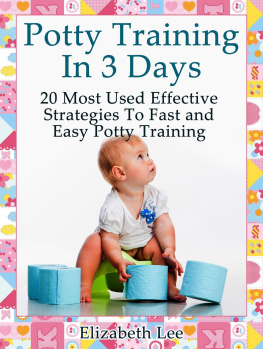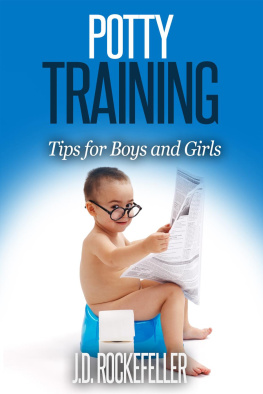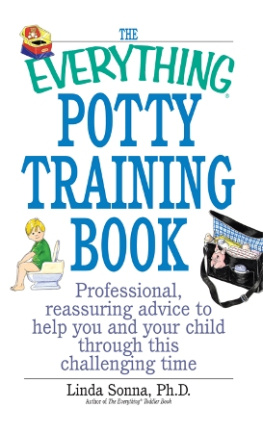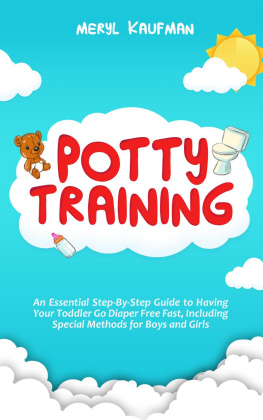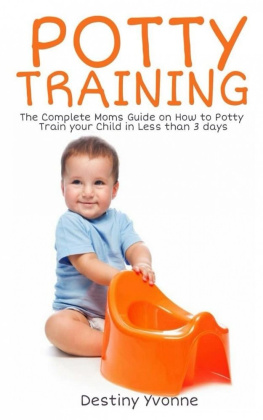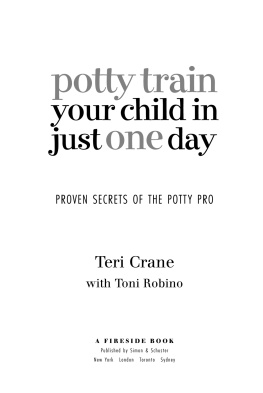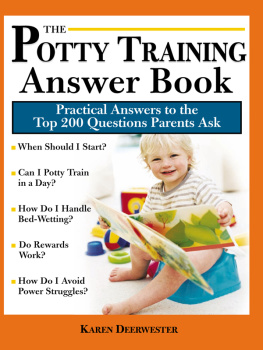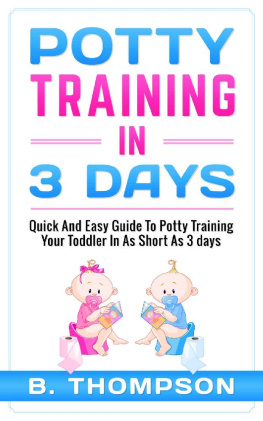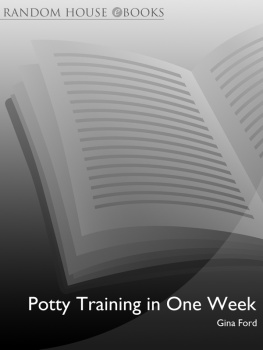Potty Training In 3 Days
20 Most Used Effective Strategies To Fast and Easy Potty Training
Table of Contents
Copyright Notice
Copyright 2015 by Elizabeth Lee - All rights reserved.
This document is geared towards providing exact and reliable information in regards to the topic and issue covered. The publication is sold with the idea that the publisher is not required to render accounting, officially permitted, or otherwise, qualified services. If advice is necessary, legal or professional, a practiced individual in the profession should be ordered.
- From a Declaration of Principles which was accepted and approved equally by a Committee of the American Bar Association and a Committee of Publishers and Associations.
In no way is it legal to reproduce, duplicate, or transmit any part of this document in either electronic means or in printed format. Recording of this publication is strictly prohibited and any storage of this document is not allowed unless with written permission from the publisher. All rights reserved.
The information provided herein is stated to be truthful and consistent, in that any liability, in terms of inattention or otherwise, by any usage or abuse of any policies, processes, or directions contained within is the solitary and utter responsibility of the recipient reader. Under no circumstances will any legal responsibility or blame be held against the publisher for any reparation, damages, or monetary loss due to the information herein, either directly or indirectly.
Respective authors own all copyrights not held by the publisher.
The information herein is offered for informational purposes solely, and is universal as so. The presentation of the information is without contract or any type of guarantee assurance.
The trademarks that are used are without any consent, and the publication of the trademark is without permission or backing by the trademark owner. All trademarks and brands within this book are for clarifying purposes only and are the owned by the owners themselves, not affiliated with this document.
Disclaimer
While all attempts have been made to verify the information provided in this book, the author does not assume any responsibility for errors, omissions, or contrary interpretations of the subject matter contained within. The information provided in this book is for educational and entertainment purposes only. The reader is responsible for his or her own actions and the author does not accept any responsibilities for any liabilities or damages, real or perceived, resulting from the use of this information.
S uccessfully potty training is a major step in a childs development, growth, and independence. Because it is so important, it can pose unique challenges for both the parents and the children, especially for new parents with their first child. Feeding your baby, taking away the pacifier, and getting them to eat were all challenging steps, but nothing can compare to the frustrations and anxieties a parent can feel as they deal with training their child how to go to the potty.
As such, always remember that there is no one definitive answer as to how and when to begin potty training. You need to be flexible and adaptive when employing the strategies described in this book. But know that these will definitely help you and your child get there, though the time this will take will vary for each and every child, because of course, each child is different!
Also keep in mind that when we say successful potty training, the definition of success may be different for each person, but in this book, it means that the child has transitioned from diapers to using the potty. He or she may still have occasional accidents, but in general, if your child has become fully comfortable with using the potty on his or her own, then that is success!
This book will first give you an overview of what potty training is, and what kind of general timeline you can expect. Then, we will move on to why your child should be potty trained by describing the benefits of potty training, as well as the problems you and your child may encounter if he or she is not properly potty trained. Finally, we will describe in detail the 20 most used and most popular strategies for successful potty training.
Potty training is a huge step for children and parents alike, and though it is also a challenge for the children themselves, as the ones who are aware of the impact this could have on their childs development, parents will face an even greater pressure and challenges. It is important that you remain positive and calm the more you do so, the more likely your child will mimic your positivity and settle into the new routine.
Your role is invaluable in the potty training process. With this book in hand, you will have everything you need to know to help your child achieve this major milestone!
Chapter 1 Potty Training 101
A successful potty training is a significant milestone for any child. Through it, the child gains independence, and the parents are freed of the considerable time, effort, and cost previously required. Though there is no set timeline for this potty training process, there are some things you should know about what to expect and when.
One of the most frequently asked question is: When should we start potty training our child? The answer is: There is no definitive answer as to what age to begin training. Though in general, physicians bring up the topic of potty training around the 18- or 24-month visit, most children complete potty training between 18 and 37 months of age. There is also research that has shown that the average age of completion of successful potty training has been increasing in the recent decades. As such, there is absolutely no reason to panic if your child is 2 years old and still has not potty trained.
If it is not age, then how do you determine if your child is ready for potty training? Potty training hinges on the physical and emotional readiness of the child, so instead of rushing, wait until your child shows signs that he or she is developmentally ready:
- Is your child showing interest in the potty, the toilet, or wearing underwear?
- Does your child tell you when he or she needs to go to the bathroom, whether it be through words, facial expressions, or posture?
- Does your child tell you when his or her diaper is wet, and does your child express a desire to remain dry?
- Does your child demonstrate independence (i.e., plays on his or her own, says no, etc.)?
- Does your child have dry periods of two or more hours throughout the day?
- Can your child walk and sit on his or her own?
- Can your child follow simple directions?
Next page
